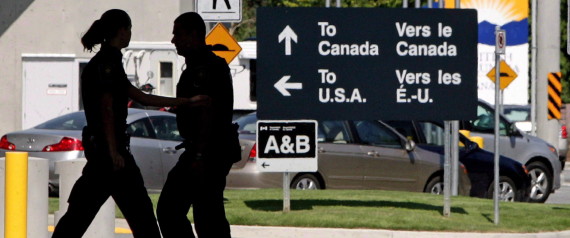A proposed one-eighth percent tax on cargo entering the U.S. by land after being unloaded at Canadian ports has been averted for a third time after it failed to find a place in the Water Resources Reform and Development Act (WRRDA) signed into law by President Obama earlier this month.
Levy introduced to replace the Harbor Maintenance Fees
Washington state’s senators, Patty Murray and Maria Cantwell, both Democrats, introduced the levy into the bill last year to replace the Harbor Maintenance Fees (HMF) currently collected on cargo arriving at U.S. ports. The senators cited a U.S. Federal Maritime Commission report which found that over a quarter of traffic now going through American ports could move to Canadian ports such as Prince Rupert and Vancouver in the near future. Cantwell said the measure would level the playing field and complained that the Washington state ports of Seattle and Tacoma were contributing an unfairly large amount into the HMF fund, which is used for maintenance of ports across the nation.

Canadian Officials Opposed to Tariffs
Canadian officials were unified in their opposition to the proposed tariff, with Gary Doer, the ambassador to the U.S., threatening a reciprocal tax on shipments to Canada that had entered U.S. ports and Minister of Transport Lisa Raitt predicting harm to trade relations. Doer was reportedly quite happy that the tax didn’t end up in the WRRDA, calling it a “massive tax grab” that would have caused a congestion nightmare at land border crossings if implemented.
Asian Shippers Use Canadian Ports
The Association of Canadian Port Authorities also opposed the idea. Its president, Wendy Zatylny, said that Asian shippers choose Canadian ports for many reasons besides the absence of HMF. Among those are great circle routes that cut days off time at sea, more modern infrastructure, innovative and efficient processing of cargo, lack of congestion, and low rail grades to Chicago and other major U.S. cities. Zatylny believes that the tax would therefore have been unfair, as well as damaging to efforts to make U.S.-Canada trade more efficient and protect the estimated 10 million jobs dependent upon it.
The final version of the WRRDA does include $25 million each for the Seattle and Tacoma ports, which may be enough to appease Murray, Cantwell and their counterparts in the House of Representatives. According to Ambassador Doer, it had better – he believes that this third strike for the cargo tax idea means it’s unlikely to succeed on its merits anytime soon.

 Payment
Payment  My Account
My Account